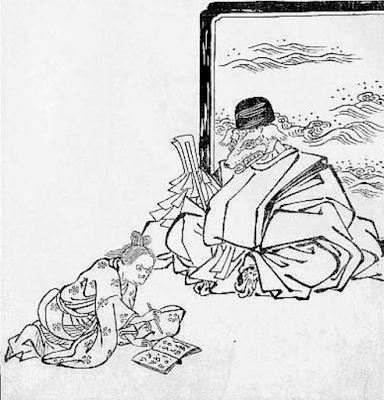Inugami
In Japanese folklore, inugami is a type of spirit possession in the form of a dog familiar. These yokai are created by powerful sorcerers and remain in a family for generations. They are capable of doing the bidding of their masters, often committing terrible deeds on their behalf. They are also able to possess others, causing serious illness and even death. Inugami are similar to other types of spirit possession such as shikigami and kitsune-tsuki or fox possession.
 |
| Inugami from Bakemono no e, ca. 1700 |
The process of creating an inugami is quite horrifying. Firstly, it requires that a dog be nearly starved to death and when it is at its most desperate, its head chopped off. This head is then buried in a place where many people will walk over it, such as a busy road. The dead dog’s spirit will become angry and transform into an onryo (vengeful spirit). At this point the head is resumed and dried out and enshrined in the secret place within the home.
 |
| Toriyama Sekien |
From here the evil sorcerer is able to create a fetish, whereby the head is possessed by a spirt that can then be controlled. After this process, the inugami can take on a form that allows it to appear just as any normal dog. Families that have inugami will create one for each family member and these spirits are passed down through generations, often bringing the family great wealth and fortune. In some cases though, the inugami will turn on its masters and instead cause the family misfortune and ruin.
In the past, if someone was suspected of using this kind of spirit possession, they were exiled from the community and forced to live a solitary life away from the rest of society. If you develop strange pains in your chest, shoulders, hands and feet, feel very jealous for no reason, and start barking like a dog, you may be possessed by an inugami. The only solution is to hire a sorcerer to try and remove the spirit possession, but there are unfortunately no guarantees that the process will work.






Comments
Post a Comment